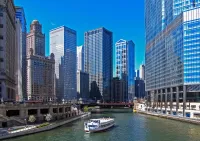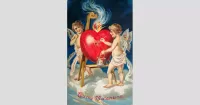The St. Louis Blues are a professional ice hockey team established in 1967 as part of the NHL's expansion. Named after the famous W. C. Handy song, they compete in the Central Division of the Western Conference. Their home arena is the Enterprise Center, which has a seating capacity of 18,096 and has been their home since 1994, when they moved from the St. Louis Arena.
1929: St. Louis Flyers Begin Play
In 1929, after an ice plant was installed at the St. Louis Arena, the minor league St. Louis Flyers began playing there.
1934: Ottawa Senators Move to St. Louis
In 1934, the owners of the Ottawa Senators moved the team to St. Louis for the 1934-35 season, renaming them the St. Louis Eagles.
1942: League Stabilization
After further contraction, the NHL stabilized at six teams after 1942, rebuffing attempts at further expansion during this period.
1961: Black Hawks Championship
Following the Chicago Black Hawks' championship in 1961, the team became much more successful at the box office in Chicago.
1966: Franchise Granted
In 1966, Insurance tycoon Sid Salomon Jr., his son, Sid Salomon III, and Robert L. Wolfson were granted the St. Louis Blues franchise.
June 19, 1967: Death of Julius "Biggie" Garagnani
On June 19, 1967, Julius "Biggie" Garagnani, a business partner of Stan Musial and part of the investment group for the St. Louis Blues franchise, died from a heart attack.
1967: Expansion Team
In 1967, The St. Louis Blues became a franchise as one of the expansion teams of the NHL.
1967: Joined NHL Expansion
In 1967, the St. Louis Blues were one of six teams added to the NHL during the expansion, along with other teams like the Minnesota North Stars and Los Angeles Kings.
1968: Stanley Cup Finals Appearance
In 1968, after winning against the Philadelphia Flyers and Minnesota North Stars, the St. Louis Blues reached the Stanley Cup Finals but were swept by the Montreal Canadiens.
1969: Vezina Trophy
In 1969, Glenn Hall and Jacques Plante of the St. Louis Blues won the Vezina Trophy for their outstanding goaltending.
1969: Stanley Cup Finals Appearance
In 1969, the St. Louis Blues were swept in the Stanley Cup Finals by the Montreal Canadiens for the second year in a row.
1970: Garry Unger Joins Blues
In 1970, the St. Louis Blues acquired Garry Unger, who became a star center and scored 30 goals in eight consecutive seasons while breaking the NHL's consecutive games played record.
1970: Stanley Cup Finals Appearance
In 1970, the St. Louis Blues were swept in the Stanley Cup Finals by the Boston Bruins.
1970: Division Rivalry
Since 1970, the St. Louis Blues have shared a division and maintained a strong rivalry with the Chicago Blackhawks.
1973: Missed Playoffs
In 1973, The Blues missed the playoffs for the first time since the franchise was founded.
1976: Smythe Division Champions
In 1976, the St. Louis Blues won the Smythe Division despite finishing five games below .500, marking their last playoff appearance of the decade.
July 27, 1977: Ralston Purina Buys the Team
On July 27, 1977, Ralston Purina purchased the St. Louis Blues, the arena, and $8.8 million in debt from the Salomons.
1979: Franchise-Worst Record
In 1979, the St. Louis Blues had their franchise-worst record of 18-50-12, with 48 points.
1980: Blues begin playoff streak
In 1980, the Blues began a streak of making the playoffs every year.
1981: Ralston Purina Loses Money
In 1981, Ralston Purina lost an estimated $1.8 million during its six-year ownership of the St. Louis Blues.
1981: Franchise Best Record
In 1981, the St. Louis Blues achieved a franchise-best record of 45-18-17, translating to 107 points, which was the second-best record in the league.
December 7, 1982: "Saskatchewan in the NHL" Brochures
On December 7, 1982, when the St. Louis Blues faced the Edmonton Oilers, brochures titled "Saskatchewan in the NHL" were distributed, causing distractions.
January 12, 1983: Bill Hunter Tenders Offer
On January 12, 1983, Bill Hunter, founder of the WHA and Edmonton Oilers, tendered an offer to buy the St. Louis Blues.
July 27, 1983: NHL approves Harry Ornest's bid
On July 27, 1983, the NHL approved a bid from a group of St. Louis investors led by businessman Harry Ornest for the Blues team and the arena, ten days before the deadline to dissolve the team. Ornest had been planning to buy the team since March, increasing efforts in late June to secure funds. Immediately after buying the team, Ornest changed the name of the team's home venue to the St. Louis Arena.
1986: Blues reach Campbell Conference Finals
In 1986, the St. Louis Blues reached the Campbell Conference finals, facing the Calgary Flames. Despite Doug Wickenheiser's overtime goal in Game 6, the Blues lost Game 7, missing the chance to advance to the Stanley Cup Finals.
1989: Former Blues players win Stanley Cup with Flames
In 1989, several former young stars from the Blues, including Rob Ramage, Joe Mullen, and Doug Gilmour, played key roles in helping the Calgary Flames win the Stanley Cup.
1990: Brett Hull's dominant season
In 1990, Brett Hull, known as the "Golden Brett", had a remarkable season as one of the League's top stars. He was a scoring sensation.
1994: Mike Keenan hired as general manager and coach
In 1994, Mike Keenan was hired as both the general manager and coach of the St. Louis Blues with the hope of ending the team's postseason struggles.
1994: Kiel Center opens
In 1994, the Kiel Center (now the Enterprise Center) opened, which was built using capital provided by a consortium of 19 companies that bought the St. Louis Blues.
1994: Move to Enterprise Center
In 1994, the St. Louis Blues moved their home games from St. Louis Arena to the Enterprise Center in downtown St. Louis.
1995: Chris Pronger acquired
In 1995, Chris Pronger was acquired by St. Louis from the Hartford Whalers in exchange for Brendan Shanahan.
1995: Keenan makes major changes to the roster
In 1995, Mike Keenan made significant changes to the Blues' roster, trading away Brendan Shanahan and Curtis Joseph, and acquiring Wayne Gretzky and Grant Fuhr from the Los Angeles Kings.
December 19, 1996: Mike Keenan Fired
On December 19, 1996, Mike Keenan was fired from his position as both general manager and coach of the Blues. Ron Caron was then reinstated as interim general manager.
June 9, 1997: Larry Pleau hired as general manager
On June 9, 1997, Larry Pleau was hired as the general manager of the St. Louis Blues.
1998: Brett Hull leaves for Dallas Stars
In 1998, Brett Hull, following a feud with Mike Keenan, departed from the Blues to join the Dallas Stars.
1999: Waltons purchase the Blues
In 1999, Wal-Mart heir Nancy Walton Laurie and her husband Bill purchased the Blues.
1999: Blues set franchise record for points
In 1999, the Blues set a franchise record for points during the regular season.
2000: Blues win Presidents' Trophy, lose in first round
In 2000, the St. Louis Blues earned the Presidents' Trophy for the League's best record with 114 points, but were upset by the San Jose Sharks in the first round of the playoffs.
2001: Blues reach conference finals
In 2001, the Blues advanced to the conference finals, but lost to the Colorado Avalanche in five games.
2004: End of playoff streak
In 2004, the Blues' streak of making the playoffs every year ended. They had a 25 year streak from 1980 to 2004.
June 17, 2005: Lauries announce sale of team
On June 17, 2005, Nancy Walton Laurie and her husband Bill announced that they would sell the St. Louis Blues.
September 29, 2005: Agreement signed with SCP Worldwide
On September 29, 2005, the Lauries signed an agreement to sell the Blues to SCP Worldwide.
November 14, 2005: SCP Worldwide withdraws from negotiations
On November 14, 2005, the Blues announced that SCP Worldwide had officially withdrawn from negotiations to buy the team.
December 27, 2005: Letter of intent signed with General Sports
On December 27, 2005, the Blues announced they had signed a letter of intent to exclusively negotiate with General Sports and Entertainment, LLC.
2005: Blues finish with worst record in NHL
Following the disappointing 2005-06 season, which saw the Blues with the worst record in the NHL, the new management focused on rebuilding the franchise. That season was the 2005-06 season.
March 24, 2006: Sale of Blues completed to SCP and TowerBrook Capital
On March 24, 2006, the Lauries completed the sale of the St. Louis Blues and the lease to the Savvis Center to SCP and TowerBrook Capital Partners, L.P.
December 11, 2006: Mike Kitchen fired, Andy Murray hired
On December 11, 2006, the Blues fired head coach Mike Kitchen and replaced him with former Los Angeles Kings head coach Andy Murray.
January 4, 2007: Blues have best record in NHL over prior 10 games
On January 4, 2007, the St. Louis Blues had a record of 6-1-3 in their previous ten games, which was the best in the NHL during that stretch.
October 2, 2007: Blues finalize season-starting roster
On October 2, 2007, the Blues finalized their season-starting roster, including rookies David Perron, Steven Wagner, and Erik Johnson.
December 2007: Doug Weight traded to Anaheim Ducks
In December 2007, Doug Weight was traded to the Anaheim Ducks, along with a minor league player, in exchange for Andy McDonald.
2007: Blues trade key players and sign Paul Kariya
In 2007, just before the NHL trade deadline, the Blues traded several key players, including Bill Guerin, Keith Tkachuk, and Dennis Wideman, for draft picks, though they re-signed Tkachuk after the season. Additionally, the Blues signed Paul Kariya to a three-year contract worth $18 million.
February 8, 2008: Eric Brewer chosen as team captain
On February 8, 2008, Eric Brewer was chosen as the team's 19th captain after the Blues had gone much of the season without one.
April 10, 2009: Blues make 2009 playoffs
On April 10, 2009, the St. Louis Blues clinched a playoff berth after defeating the Columbus Blue Jackets 3–1, marking their return to the playoffs for the first time in five years.
November 6, 2011: Ken Hitchcock named head coach
On November 6, 2011, the St. Louis Blues fired head coach Davis Payne and appointed Ken Hitchcock as his replacement. At the same time, David Backes was named the new team captain.
March 17, 2012: Blues clinch playoff berth
On March 17, 2012, the St. Louis Blues became the first team to reach 100 points and clinch a playoff berth in the 2011–12 season, marking their first playoff appearance since 2008–09.
June 13, 2016: Mike Yeo to replace Hitchcock as head coach
On June 13, 2016, it was announced that Mike Yeo would replace Hitchcock as head coach of the Blues following the 2016–17 season.
February 1, 2017: Blues fire Hitchcock, promote Yeo
On February 1, 2017, despite defeating the Blackhawks in the 2017 Winter Classic, the Blues fired Ken Hitchcock and promoted Mike Yeo to head coach.
November 19, 2018: Blues fire Mike Yeo, replace with Craig Berube
On November 19, 2018, the Blues fired head coach Mike Yeo after a 7–9–3 start to the season and replaced him with Craig Berube on an interim basis.
March 29, 2019: Blues qualify for playoffs after being last in the league
On March 29, 2019, the St. Louis Blues became the seventh team in NHL history since the 1967–68 season to qualify for the playoffs after being in last place after January 1.
June 12, 2019: Blues win their first Stanley Cup
On June 12, 2019, the St. Louis Blues defeated the Boston Bruins 4–1 in game 7 to win their first Stanley Cup in franchise history. Ryan O'Reilly won the Conn Smythe Trophy for playoff MVP.
August 29, 2019: Blues named official hockey team of Missouri
On August 29, 2019, a revised statute became effective, officially designating the St. Louis Blues as the state's official hockey team in Missouri.
2019: Stanley Cup Victory
In 2019, the St. Louis Blues won the Stanley Cup, marking their first championship win 49 years after their last appearance in the finals.
February 12, 2020: Jay Bouwmeester collapses on bench
On February 12, 2020, Blues defenseman Jay Bouwmeester suddenly collapsed on the bench during a game against the Anaheim Ducks. He did not return to play for the rest of the season, and the game was suspended.
August 2020: Blues participate in round-robin tournament for playoffs
In August 2020, the St. Louis Blues participated in a round-robin tournament for the top-seeded teams in the Western Conference for the 2020 Stanley Cup playoffs. They failed to win a game and ended up as the fourth seed.
September 2, 2020: Jake Allen Traded to Montreal Canadiens
On September 2, 2020, the Blues traded goaltender Jake Allen to the Montreal Canadiens after he had spent 10 years in the Blues organization.
Mentioned in this timeline
Adidas AG is a German multinational corporation and the second-largest...

Wayne Gretzky a Canadian former professional ice hockey player widely...

Los Angeles is the most populous city in California and...
The Montreal Canadiens nicknamed the Habs are a professional ice...

Chicago is the most populous city in Illinois and the...

An avalanche is a fast-moving flow of snow down a...
Trending

45 minutes ago Kevin Nash still holds a grudge against CM Punk for leaving WWE.
45 minutes ago SpaceX and NASA Launch Astronauts to ISS: Relieving Crew Shortage

3 hours ago Apple Stock Plunges Amid AI Concerns and Regulatory Pressure: A 10-Month Low

3 hours ago Valentine's Day: Businesses Prepare, Florists Juggle Orders Amid Rising Costs, Love in the Air

3 hours ago Deandre Ayton's status for Thursday's Lakers game uncertain due to injury.

3 hours ago Stock Market Plunges Amid AI Disruption Fears: Tech Stocks Lead Selloff.
Popular

Kid Rock born Robert James Ritchie is an American musician...
The Winter Olympic Games a major international multi-sport event held...

Barack Obama the th U S President - was the...

XXXTentacion born Jahseh Dwayne Ricardo Onfroy was a controversial yet...

Michael Joseph Jackson the King of Pop was a highly...

Michael Jordan often known as MJ is a businessman and...